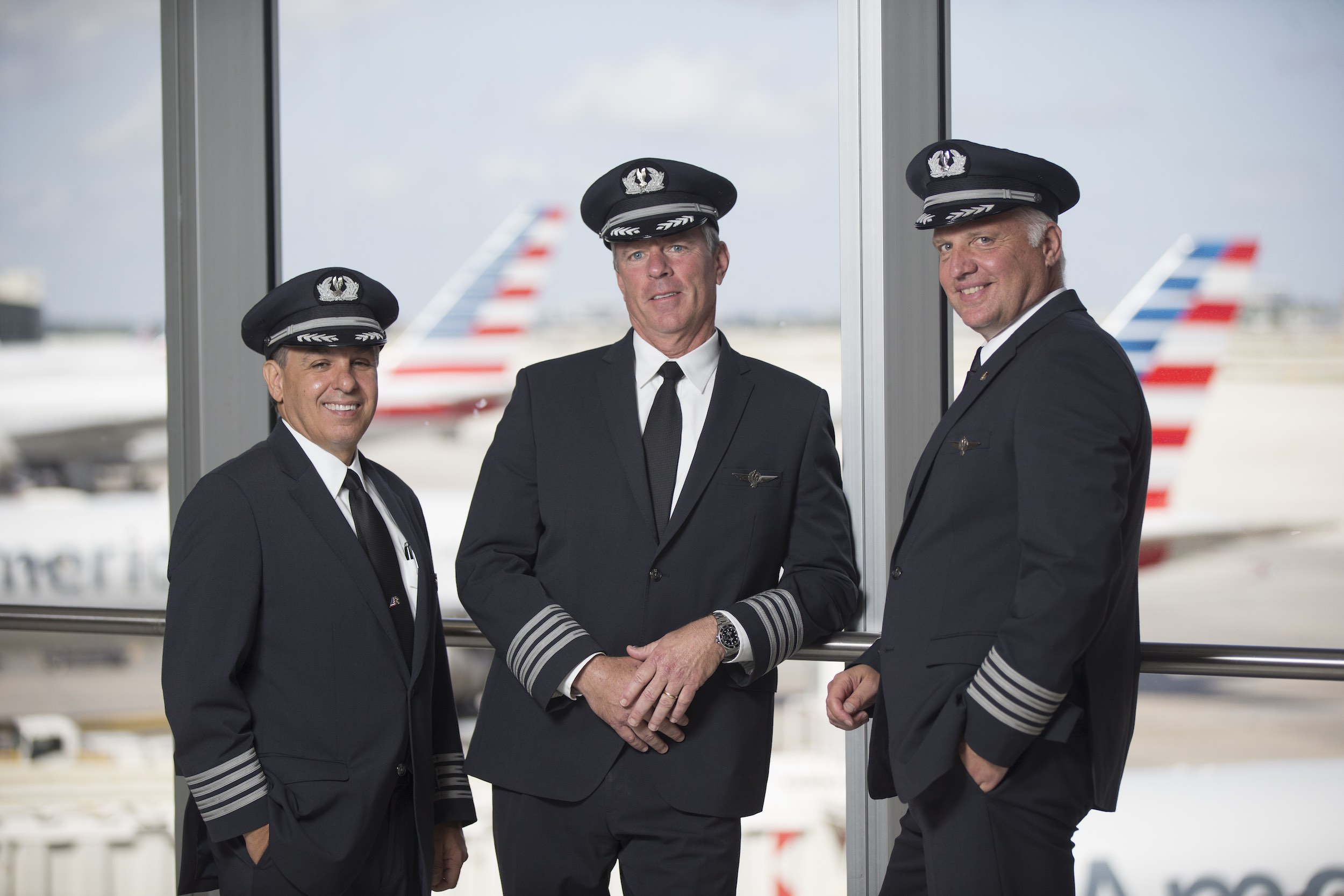
The mandatory retirement age for U.S. airline pilots is back in the headlines. A push is underway to raise the limit from 65 to 67, but this is not a simple matter. Congress set the current age in law and would have to change it. Meanwhile, the global standard still caps international multi-pilot airline operations at 65, and a proposal to lift that to 67 is being debated this week in Montreal.
Should The Airline Pilot Retirement Age Rise To 67?
Over the weekend, Senate Commerce Chair Ted Cruz urged President Donald Trump to back an international effort, led by the International Air Transport Association (IATA), to increase the global pilot retirement age to 67 at the International Civil Aviation Organization (ICAO) Assembly in Montreal. In 2024, Congress rejected a similar U.S. move after the Federal Aviation Administration (FAA) asked for a scientific and safety analysis first. Labor groups, including the Air Line Pilots Association (ALPA), remain opposed.
- U.S. law today: Mandatory retirement for Part 121 airline pilots at 65 under 49 U.S.C. §44729. Changing this requires an act of Congress.
- International standard today: ICAO Annex 1 limits multi-pilot international airline operations to 65. IATA has asked ICAO to consider 67 at this week’s Assembly. The U.S. has not taken a formal position yet.
- What happens if the U.S. moves first: Pilots over 65 could not fly international segments while ICAO still caps at 65, creating scheduling and training complexities. ALPA highlights those constraints in its opposition.
Arguments In Favor Of Raising The Pilot Retirement Age
- Experience retention: Keeps highly seasoned captains and instructors on the line longer during a period of heavy retirements.
- Near-term staffing relief: Adds two more years of service per pilot while the training pipeline catches up.
- If ICAO also moves: A coordinated global increase would avoid the international/domestic mismatch that tripped up prior attempts.
Arguments Against Raising The Pilot Retirement Age
- Safety and medical risk: FAA has asked for evidence and safeguards before any change. Opponents cite age-related health and cognitive risk profiles that are hard to capture with current screening.
- Operational friction: If international remains at 65, older pilots could be blocked from many premium routes, complicating bidding, training, and utilization.
- Career progression: Slower retirements can delay upgrades and depress morale among mid-seniority pilots.
My Thoughts
Bright-line rules offer a compelling alternative to vague standards, often reflecting a summary of wise decisions. If people over the age of 65 are banned from piloting commercial airplanes, it is because such policy represents a generally accurate summary of good individual decisions, and is much less costly to administer than any alternative. (Just think about the expenditures that would be necessary to assess competence on a case-by-case basis.) These rules do not summarize individually wise decisions, but rather express a social judgment about valuations and relations.
An airline may derive abundant short-term benefit from keeping an experienced pilot beyond a predetermined retirement age; but such a decision will likely lead to high long-term costs from having to monitor every pilot individually and from insuring against mistaken decisions.
That tension is exactly what the current debate exposes. Raising the age buys short-term staffing relief and preserves valuable experience. It also risks swapping a clear, uniform rule for a patchwork of waivers, one-offs, and operational compromises, especially if ICAO does not move in lockstep with Congress. The result could be the worst of both worlds: complex scheduling limits for older pilots on international trips, additional medical and training oversight costs, and continuing uncertainty for pilots planning their careers.
It’s not that I’m opposed to raising the age from 65 to 67…I think in most cases it would be no problem and as I’ve experienced when flying private or on Part 135, these older pilots are sharp and professional. But I do think a bright-line rule has to exist. Those calling for totally abolishing any mandatory retirement age underestimate the cost of increased monitoring that would be necessary for older pilots, if for nothing other than libality reasons.
And the uncomfortable truth is that in the case of flight attendants, where there is no mandatory retirement age, I’ve flown with some older flight attendants who appeared so frail that I’d imagine they’d be of no use in an emergency. While flight attendants ostensibly go through medical and physical evaluations, I remain highly skeptical that many flight attendants would be able to lift an emergency exit door…
CONCLUSION
Right now, this is a live policy fight, not a done deal. Congress would have to change U.S. law to raise the domestic retirement age, and ICAO would have to lift the international cap for truly seamless global operations. The FAA has asked for data first. Labor is opposed. Airlines want relief. I’m somewhat agnostic on whether to change the age, but whatever comes next, it needs to be coherent, evidence-based, and globally aligned.
image: American Airlines




Let’s get some facts straight, it’s not 67 it’s 68. The new proposal would allow you to fly until your 68th birthday. Also the cognitive decline for people in their 60s is massive. Just ask any pilot how many times they’ve had to hand hold a senior pilot. These guys fly 2 trips a month at most, and for mentoring lol it’s more like bitching, whining, and complaining. Plus half these guys are on LTD already!
Also , make the automatic non-retention age for FAs around 27 . After that they are snappish and out-of-shape .
Let the medical & proficiency testing decide, not Congress or the pilot unions!
I would be very careful when using a number to limit people’s ability to do something. I work in the food and wellbeing industry and I can tell you that people are living healthier and longer than before IF they take care of themselves. I personally remember the generation of my great grandmother and grandmother when they were around 70yo and unfortunately at that time at that age they were basically done with life. Fast forward to the generation of my mother and they are in their 80s and much better than the old 60s and 70s. Thus, I think what is needed is a very strict exam on pilots to determine if they can still do their job safely. I can guarantee you will find pilots at 67 that are in much better shape physically and mentally than pilots in their 50s. As long as they are fit for their job, I have no issues in them flying 2 more years. I know it is a different set of skills but people like to say that FAs are there for our safety. I have seen FAs that will be a total liability in case of an emergency but somehow they are still allowed to be there “for our safety”.
The current testing isn’t precise enough to make those distinctions with great accuracy, which is why an age-defined limit has always applied. I think it’s quite reasonable. Move over, and find another meaningful purpose for your life in retirement. This obviously should apply to cabin crew as well. People hanging on to their jobs well into their 70s or 80s is pure vanity. The Congress is a great example of American gerontocracy. It’s unseemly to be still running for election in your ninth decade. Use your connections and power to make a real difference in the community, instead of holding on for another term in the vainglorious hope of making the record books. It’s very sad.
Yes, but I would like to see statistical data that shows a 2 year over 65 brings their cognition to such levels that are unsafe. Why not 62, 63, 66? How was 65 defined as the magical age? As I said, you can for sure get a 66yo that is in much better shape than maybe a 64yo. I get that testing isn’t precise enough but don’t tell me I should be 100% confident in my pilot because he is 1 week before completing 65.
The biggest problem is that testing for good judgment and functioning is very difficult. Look at Biden. Everyone said he was really fit. He even challenged an Iowa voter to pushups. Yet it came crashing down at the Presidential debates when he confused Covid with Medicare and confused trillions with billions and many more mistakes. Look at Trump. He claims to be the most fit president in the history of America but he is showing subtle signs of dementia.
Blood pressure can be checked but since there is not a good test for bad judgment, age is the way to reduce the danger.
This is the correct answer, and it also applies to cabin crew.
Exactly … term out the FAs at 27 for reasons of demeanor and physical shape .
If they can pass the physical and mental exam… let ’em fly to 67 but not paired with another “senior” pilot in the “front office.” Scheduling software can easily handle that requirement. A good friend “aged out” of AA at 65 but wanted to fly longer; he lost a significant amount of his pension at the most recent AA bankruptcy and wanted to get some of that back.
The misogyny here by a frequent commenter is disgusting. I believe pilots are quite safe to the 68th birthday, with continued health exams and testing. It is a shame airlines have not developed a path for more senior flight attendants to continue working without flying. Yeah unions, good but not always great.
Thank God there are no Gen Z-ers/Gen Alphas cracking 6-7 jokes here.
Absolutely not.
No. The next generation is already being suffocated by boomers who refuse to retire or otherwise move on when they should. Last thing we need is to continue having boomers in the workforce holding back the career progression of younger pilots.
Many people live way beyond their means; pilots are no exception.
Those pushing 65+ are the ones who have not saved a dime.
Time to move on!!
Didn’t the unions negotiate salaries and benefits for the pilots with the assumption they’d retire at 65? Why do they want to keep working? If you love flying so much, you can still fly as a hobby, just not under a commercial license.
Understand, any mention of experience, safety, mentorship, ageism, pilot shortage etc etc is just window dressing for what is essentially greed. I usually fly with folks in the 62-64 year old range. These people are in it for two things: great schedule and lots of $.
They enjoyed the ticking off the top their entire career and now that they are standing looking down they don’t want to let go. If all these “noble” reason were real, we would have RJs/737s/A320s dropping like flies everyday. Get a hobby, or even better get a 135 job!
A line has to be drawn in the sand somewhere. 65 is it.
Once again alot of comments from people that know nothing about pilots, flight attendants, their job or lifestyle. Flying a 787 is a lot different than flying around a Cessna 152 for your “hobby”. Senior flight attendants don’t want to be pushed into a non flying job. Who wants to sit in an office all day? That’s why we fly. As far as lifting doors, I have no idea what doors you are talking about lifting? 767 doors that are not in the armed mode or the window exits on the aircraft that need to be lifted out across the seats? I’ve seen many a senior flight attendant rip those out in a flash. Once again, I could care less about what everyone else does for a living or what their work life involves, but for some reason so many people are obsessed with pilots and flight attendants. I believe a few of the airlines are hiring right now.
As an airline pilot myself, let me put it this way:
It’s not how fast you can push that button, but it’s about what button and when did you already know you had to push it. Experience is more important in this job than any other job I could think of.
If we can pass the medical checks and the recurrent flight tests, why should be the government to tell me when to work and when to quit.
To the selfish young pilots that want to deny the public the advantage of more experienced crews, stop being so entitled. We learned in much harder conditions than you, we know more than you. Relax and your time will come, as the extension will cover you too.